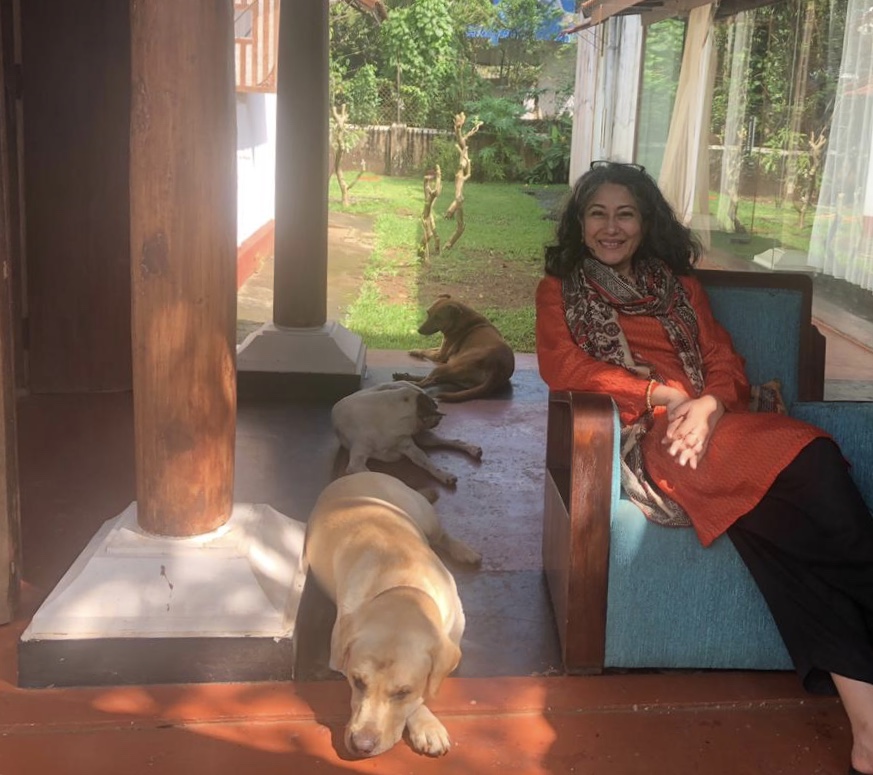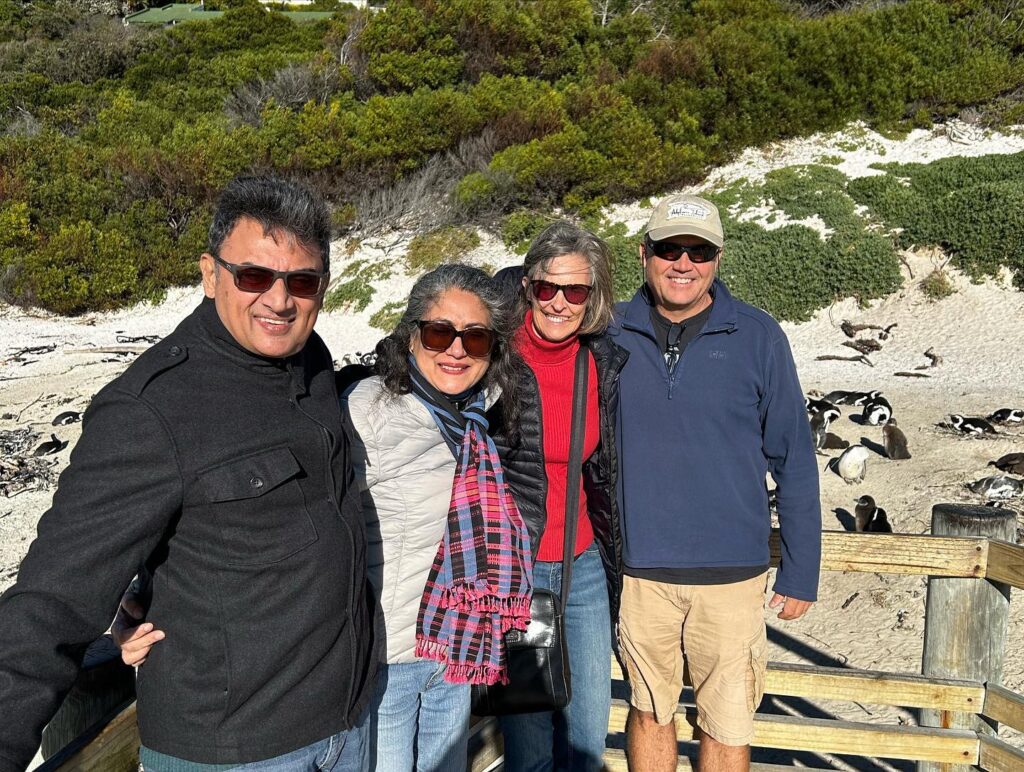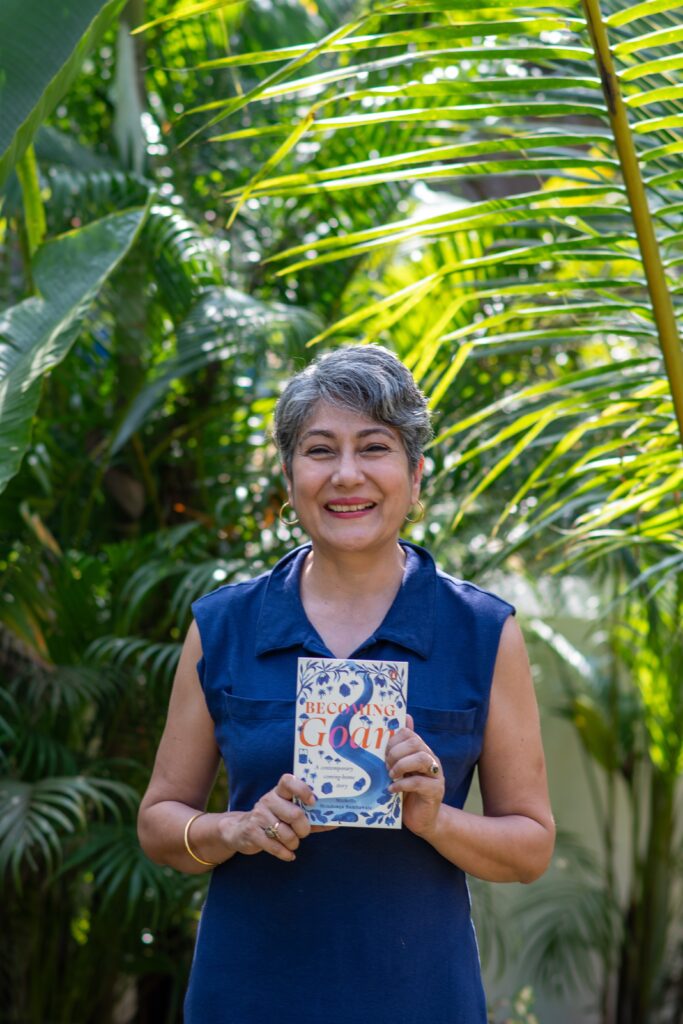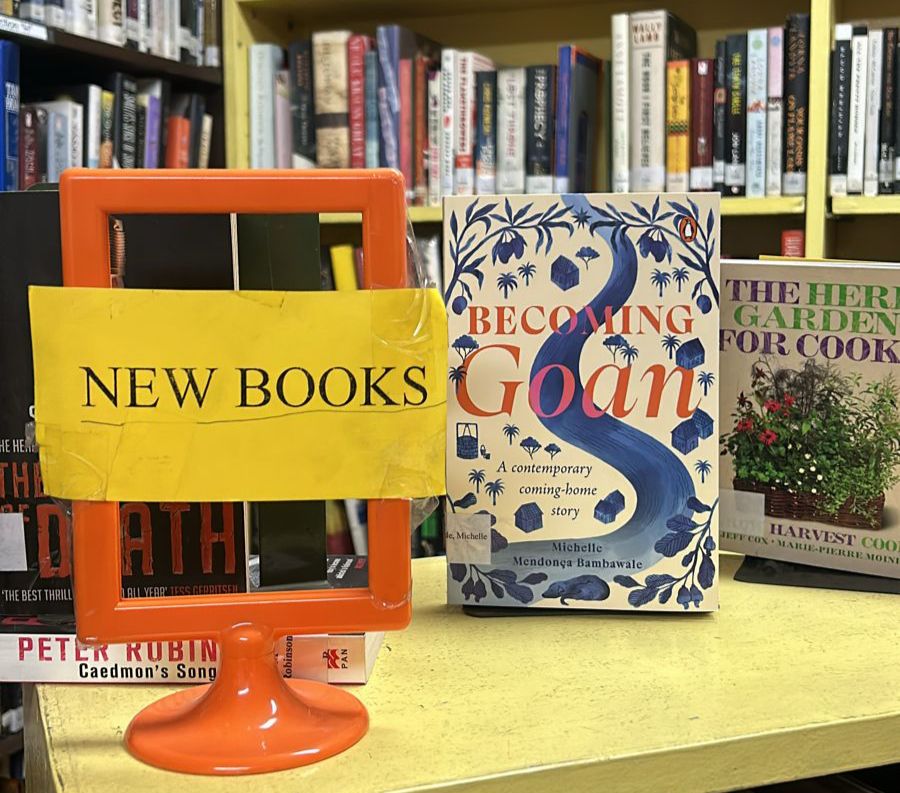Michelle spent 18 years as a trailing spouse in three countries before moving back to India — where her adjustment adventures have continued after all, as chronicled in her new book, “Becoming Goan: A Contemporary Coming Home Story,” one of our summer reading recommendations (now available on Amazon, worldwide). This is the concluding chapter of her story — for now!
After 18 years of living as an expat in Dubai, Bangkok, and London, and looking in from the outside at the host country and culture, I now find myself in a strange, unique, position of living permanently in Goa, India.
I am Goan by origin. I inherited, restored, and extended my ancestral home. However, I didn’t live in the village of Siolim full time until the COVID-19 pandemic prompted my family’s move sooner than expected.
My book will give you a lighthearted yet thoughtful insight into village life in the 2020s, from my perspective both as an insider reflecting on being Goan and an outsider looking in at this rapidly-changing place.
Home and away
My husband Bharat and I had returned to our home country — to Delhi in 2011 and Mumbai in 2016 — with a plan to slowly reacclimatise to living and working in India before eventually retiring in Goa.
Then the pandemic hit, leading us — plus our adult children Kunal and Divya, and our three dogs Rusty, Roo, and Haruki — to relocate to Goa in June 2020. (This was earlier than we had planned, and we never imagined that our fully-grown Third Culture Kids would be able to live and work in Goa, too.)

While our family was locked down together in this uncertain world, I resurrected my blog. I was looking for a way to process my emotions and to record this important time in history; the uncertainty of living in a pandemic on the one hand, and the solidity of reconnecting to my roots on the other.
Pre-pandemic, whenever we had tried to work remotely from Goa, people did not take us seriously. They told us to “have a great holiday and we will talk business when you are back.” But the coronavirus ultimately changed India’s working-from-home norms, and now Bharat and I are able continue to work virtually from here, permanently. (Our son has decided to continue living and working in Goa, too. Our daughter Divya was scheduled to start her master’s degree program in education in the U.K. in the fall of 2020, and at Vanderbilt’s Peabody School in the fall of 2021, but never got to either due to the pandemic travel and visa restrictions. She finally earned her master’s degree at Vanderbilt in 2023 and now teaches in a private school in San Francisco.)
Expat life lessons: the good, the bad, and the fun
In the past, each time my family moved, I had to start again. Find a job — in some cases a new career for myself. Find schools for my children. Find friends and create a community. All while adapting to a new expat culture and a new host culture.
One silly but not negligible niggle of our expat life had been finding suitable electrical adaptors after each move. Our plug points were different from the UAE, to Thailand, to the U.K., to India, so we ended up with a box of useless adaptors. More helpfully, every time our friends relocated, they left us with boxes of wine and leftover liquor they couldn’t carry across continents!
As members of the serial expat community, we repeatedly experienced the heartbreak of friends who had become family moving on to their next location. The only consolation is that with the help of technology, we can keep in touch and meet on vacations, so that many of our friendships have lasted time and distance; recent travels helped me reconnect with very dear Bangkok friends in Japan and South Africa.

On self-reflection, I believe we need to try to experience different cultures without our own cultural bias and lens. Unfortunately, we carry a lot of our own cultural baggage. Our experiences cloud our views and delay our understanding, appreciation, and integration with a host culture. So stay conscious of your biases and try not to always think and compare to ‘back home, we do things yadadadaayayayaya…” Enjoy the food and culture, music and dance, literature, and films.
‘A strange feeling of homecoming’
As an expat, I had gotten used to jumping into a new place, putting together a support system, finding go-to people and places, and getting on with life. To understand and integrate with the culture, I always checked in on the art, history, food, and music. This routine helped me when I moved to Goa, where I experienced a strange feeling of homecoming.
I was already instinctively familiar with Goa, having spent summers here as a child and then through flying in and out to restore and extend this house while living as an expat. Living long-term here, however, I discovered how much more there still was to learn and understand about its history, seasons, and festivals.
Goan culture is so rich and diverse — very different to the popular beach party stereotype it is known for by most people. I realized that even those who have moved here or bought homes here in search of a relaxed village life unfortunately also bring their own cultures, biases and prejudices — and impose those on the culture where they are now living. This was changing the culture and destroying the biodiversity. All this compelled me to record this time in history in my book.
With the pandemic catalyzing a major population increase, I could see that Goa in general and the village of Siolim in particular were changing very fast before my eyes. I realized I wanted to learn more deeply about authentic Goan heritage. Strangely, I knew more of the history of the places where I had lived temporarily — especially Thailand and the U.K. — than I did of Goa, a place where I had ancestry. I began reading books, poetry, stories, and academic papers about Goa and by Goan authors, going on heritage and nature walks, observing, asking, reflecting and chronicling.
These reflections gave birth to my first book, Becoming Goan: A Contemporary Coming Home Story, published by Penguin Random House in December 2023.

I think we all struggle to answer the question we are often asked “Where are you from” we also are often looking for where we belong. After living as an expat across the world and wondering where I belong, I have finally found a home in Goa. I have been traveling with my book and having meaningful conversations around themes of modern migration and the Goan identity. Now that my book is available around the world, I can connect with many expats like me who are also looking to answer similar existential questions.

